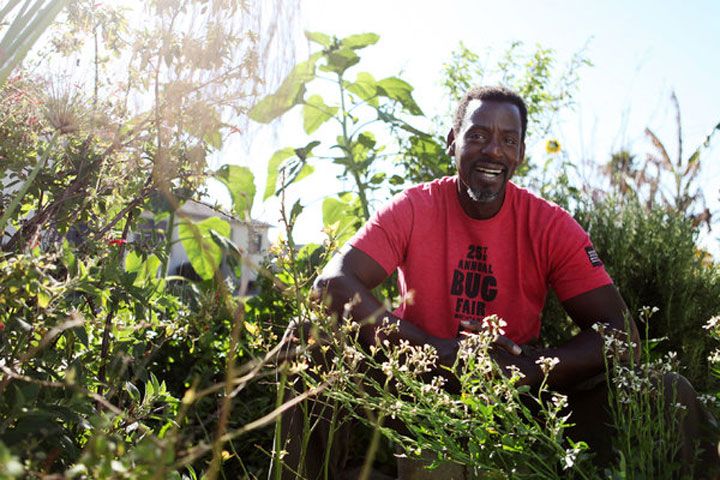
The Butterfly Effect, as coined by Edward Lorenz, is based on the idea that the air displaced by a simple flap of a butterfly’s wings may result in a hurricane weeks later. There are unintended byproducts to everything which is done.
Ron Finley started a tiny sidewalk garden outside his home in Los Angeles as a way to get a carrot “without toxic ingredients [he] didn’t know how to spell.” Bodegas and markets in inner cities are notorious for being bastions of packaged and canned foods. A weekly trip to Whole Foods was too expensive and too far away.
As his movement grew, he saw that urban gardens are a possible antidote to health issues and obesity in the inner city, poverty and gang violence. The very act of planting a garden and being connected to the earth changes someone. It caused people to respect food more and make smarter life choices. As a result, all around the country urban gardens are bringing communities together, in an attempt to make a better life for themselves and their families.
What may begin as a simple desire for cheap fresh produce has the potential to transform communities in most spectacular ways.
When ideating a solution for social good, we must ask, what else can happen because of this? Will it be good or will it cause harm to others? How can we involve more people in the process, and how will it change their lives forever, for the better?








